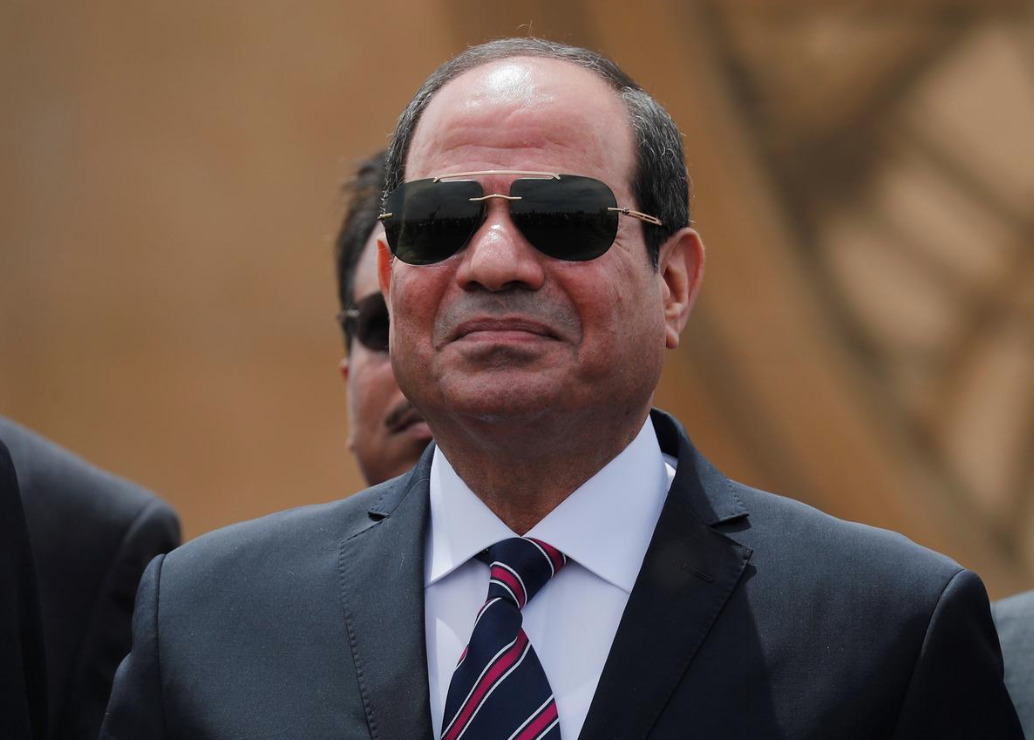When Gamal Abdel Nasser died in 1970, he left behind a progeny of like-minded ideologues who adhered to his form of big-government socialist economies and pan-Arab nationalism. Though they are now a rare breed in the visible spectrum of Egyptian politics, one Nasserist has survived as a prominent political force and is running for president in 2012: Hamdeen Sabbahi.
Reaping the fruits of his labor
Any conversation about Sabbahi usually begins with reference to his audacious face-to-face dress-down of then-President Anwar al-Sadat in 1977, when the latter decided to conduct a series of town hall meetings at universities to prove his openness to dialogue. Then a student of mass communications and president of the student union at Cairo University, Sabbahi criticized Sadat over his departure from Nasserism and shift towards neo-liberalism, as well as the seemingly decreasing support for the Palestinian cause.
Since 1977, Sabbahi has been an omnipresent opposition figure in Egyptian politics. In 1979, he was imprisoned along with other prominent leftist activists for being one of the instigators of the bread riots that saw widespread demonstrations against inflated prices of staple goods. It would be the first of a series of detentions, the last of which was in 2003, when Sabbahi was arrested for protesting Egypt’s support of the US invasion of Iraq.
Through his membership of the Arab Democratic Nasserist Party, Sabbahi stayed active in politics. He emerged as a leader within the Nasserist current after leaving the party in 1996 — claiming it has become obsolete — and forming the Karama party on similar ideological grounds. Until the 25 January revolution, Karama was not recognized as an official political party for espousing what the Mubarak regime considered a radical ideology. Meanwhile, Sabbahi ran for and was seated in parliament as an independent from 2000 to 2010.
Despite Karama’s unofficial party status, in 2004 Sabbahi was able to form the Karama newspaper. As a seasoned journalist, through the paper he was able to both ply his trade and push a “radical” political agenda. He still runs the paper today as its editor-in-chief.
In 2005, he joined a group of activists and intellectuals to form the Kefaya movement which led a wave of protests against the rule of Hosni Mubarak and the grooming of his son, Gamal, to take over the presidency. As a founding member of a group, which is considered one of the direct precursors to the 25 January revolution, Sabbahi, among the presidential candidates, is able to legitimately claim to have been part of a contemporary force for change. His activist history further backs that point.
A quick search of Hamdeen Sabbahi on Youtube will reveal videos of him breaking through security cordons during the first days of the 25 January revolution with throngs of supporters following his lead.
Some activists are critical of his reluctance to criticize the currently ruling Supreme Council of the Armed Forces in the beginning of the post-Mubarak era. He was especially criticized for meeting with the military council after the Friday of Purification (26 February 2011) when military police attacked some protesters still sitting in Tahrir.
Lately, this has changed. Speaking at Alexandria University on 28 February 2012, Sabbahi said he does not support writing the constitution while the SCAF is still in charge, indicating an inherent mistrust in the military council. Many other “opposition” candidates oppose writing the constitution under SCAF rule out of fear that they might attempt to manipulate its clauses in a way that would make the military immune to oversight.
At the same Alexandria rally, he voiced criticism of the military rulers, saying he refuses a “safe exit” for them and insists they should be held accountable for deaths that occurred during the waves of violence against protesters throughout last year.
Nasserists generally hold a tough line towards Israel. In the mid-1980s, Sabbahi was reportedly a member of a group called Egypt’s Revolution. Among other activities, one of this group’s stated aims was to assassinate Zionist activists. In 2008, Sabbahi was one of the first Egyptian parliamentarians to go to the Gaza Strip on an official visit highlighting the need for more support and to call for the end the Israeli siege of the area.
Relying on being ‘one of them’
One major problem facing Sabbahi is that he is not generating the amount of interest needed among his ideological kin. His reliance on social justice as a platform coupled with his political history should make him a prime candidate for the left. Instead, his name was not considered by prominent leftist parties to become the candidate they rally around. Despite fleetingly considering Sabbahi as a potential candidate, internal discussions among those party members were fixated on other lesser-known figures such as Socialist Popular Alliance Party (SPAP) leader Abul Ezz al-Hariry and human rights lawyer Khaled Ali. SPAP leaders said that Sabbahi’s opposition to an immediate transfer of power to a civilian leadership and changing the SCAF-imposed timeline were partly behind his not being considered as the potential candidate of the left.
Historically, the left and Sabbahi had a good relationship vis-à-vis shared causes such as farmers’ rights. He also participated in many left-led causes célèbre, such as the fight for independent labor unionization.
Many public figures have come out in support of Sabbahi. He will also have the support of large sections of the Tagammu Party, the older pre-revolution leftist party, which many feel was co-opted by the toppled regime. As much as any of the candidates on the floor now, Sabbahi is able to garner media attention and appearances that reach millions of homes on a daily basis.
Born in 1954 to a rural family from the village of Balteem in Kafr al-Sheikh in Lower Egypt, and a recognizable face in many causes for the rural poor, Sabbahi has always fashioned himself as a man of the people. His electoral slogan is “one of us.”
Being a Nasserist is perhaps no longer a direct way to win support, given the absence of a large Nasserist popular base. Nonetheless peasants will remember Sabbahi’s support for them over the years. In 1997, he was arrested while standing with peasants who were harmed by a change in laws regulating the relationship between land owners and typically poor peasant renters. The law lifted rent-control on leased farm land, dramatically increasing rent.
Sabbahi is still able to draw a crowd wherever he goes, and is likely to gather the 30,000 signatures he needs to have at some point between 10-29 March (from 15 governorates) to be an official nominee for president. He already has over 240,000 subscribers to his Facebook page.
As an independent, fundraising for the Hamdeen Sabbahi campaign has taken on a more populist tone. In the independent Al-Shorouk daily newspaper, he said that he would fund his campaign “from the few pounds he gets from many regular Egyptians,” calling on his supporters to donate, “even if just one pound.”
Newspapers reported a revealing quote from the candidate in February 2012, when he said that he is not against the idea of running as Muslim Brotherhood defector Abdel Moneim Abouel Fotouh’s running mate “or the other way around.”
One thing he can claim is constancy in his core political beliefs. While his popularity might have experienced an ebb-and-flow over the past 35 years, the positions he berated Sadat for still form the bedrock of his convictions and presidential platform today.
“I would uphold Nasser’s principles on social justice while pushing for a completely democratic system that clearly defines — and limits — the role of the president, which Nasser did not do,” Sabbahi said in a January 2012 interview with the Danish Egyptian Dialogue Institute.
Taking the good and leaving the bad
Part of the Sabbahi campaign platform involves the immediate implementation of social welfare programs as well as a 60 percent minimum wage increase to LE1,200 per month. Perhaps aiming for Robin Hood status, his platform proposes to fund this by implementing a one-off tax on 10 percent of the entire income of anyone worth more than LE50 million.
Just like Nasser, Sabbahi aims to enhance Egypt’s position as a regional powerhouse, support the Palestinian cause with more vigor, promising to end Egypt’s role in the Gaza siege, and encourage cooperation with Iran and Turkey to decrease American influence in local politics.
As part of his current campaign, Sabbahi promises to reverse the gas deals with Israel, under which Israel benefits from very low gas prices. He, however, wasn’t as confident in about annulling the Camp David accords. At the Alexandria University rally, Sabbahi said that cancelling the accords “cannot be a unilateral decision and must be well thought out.”
Nasser was a visionary for his time. For a time, his plan worked and he gained unparalleled status as a reformer and leader in the Arab World. Sabbahi would like to take the good from that and leave the bad — mostly the one-party state system — while fashioning himself as the modern, post-revolutionary option in a post-Nasser era. His ability to get into a post-Nasser mentality may be questioned by his constant appearances with the son of the late president, Abdel Hakim, who is arguably Sabbahi’s closest ally.
The 25 January revolution attempted, among other things, to end the tradition of having an absolute ruler and quasi-deific attitudes towards them. Running on a platform based on the ideology of one such figure could be a challenge for Sabbahi.




